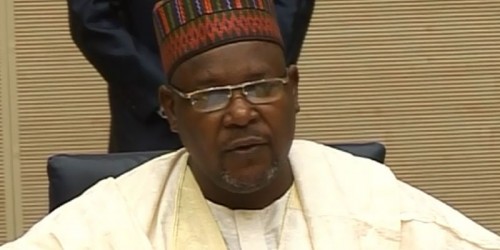Nigeria must formalize tax processes to boost internal revenue- Minister
 |
| Minister of State, Finance, Yerima Ngama |
Minister of state for Finance Yerima Ngama
54 per cent of the business ventures in Nigeria is in the informal sector of the economy.
Worried by the predominance of informal businesses in the country, the Federal Government said it is committed to formalizing its tax processes and integrating its systems to enable it capture all tax potentials to boost the economy.
The Minister of State for Finance, Yerima Ngama, said on Thursday in Abuja at the Africa Tax Forum, jointly organized by the Federal Inland Revenue Service, FIRS, the African Tax Institute, ATI; and the International Tax and Investment Center, ITIC, that the country has not been able to realize its full potentials, with 54 per cent of the business ventures in the country in the informal sector of the economy.
Though the bulk of the businesses do not file their annual returns with the Corporate Affairs Commission, CAC, in line with the requirement of Companies Income Tax regime, the minister said the percentage of these businesses declined to 46 per cent last year, to improved reorganization of their operations, registration and proper keeping of account of their activities.
The Forum brought together senior-level tax policy and administration officials with academic and industry experts to share experience and knowledge on current issues on value added tax, VAT, and tariff/excise taxation, including how to best coordinate indirect taxes between member states in common markets, natural resource taxation and selected corporate taxation issues.
Following the reforms of the 1980s and the 1990s, Mr. Ngama said there have been noticeable changes in the Nigerian economy and those of other countries in Africa, adding that there is a global consensus that the continent is one of the best investment destinations in the world at the moment.
“Growth in Africa and opportunities abound. Funds are flowing in. With a population of 300 million people, with more than half in Nigeria, there is no better destination to invest,” he said. “In Nigeria, we have a revamped Nigerian Stock Exchange (NSE), with investors coming and going.”
“Last year alone, the number of hits and download of data from the websites of the Bureau of Public Enterprises (BPE) was over 14 million. That means people are looking for information on the Nigerian economy, which was one of the three fastest growing economies in the world by 2011, after Mongolia and China. Today, the country is the fastest growing economy in Africa, and the fifth in the world.”
With more people registering to do business in Nigeria, he noted that this should translate into more revenue for government, but he lamented that the rate of tax collection to the Gross Domestic Product, GDP, is still low, due to the inability to compute, assess and collect taxes on businesses.
He said the rate of tax revenue to the GDP in Nigeria has been the lowest at about seven per cent, when compared to about 10 per cent in other countries, like Ghana, saying government is harmonizing its tax laws and regulations to remove a lot of informalities and wastages, to make it easier for businesses to pay their taxes and contribute to the growth of the economy.
“We need to re-strategize and find out ways to improve tax collection in the country. We need to educate the people that it is in the interest of all, including businesses, to pay tax, to make money available to government for the provision of infrastructure (water, electricity, roads, etc,) necessary to create the enabling environment, or not pay tax, and resolve to provide such infrastructure at a higher cost, which would affect the cost of doing business,” he said.
Mr. Ngama said the essence of the forum is to see how businesses that come to the country can contribute to the growth of the economy by paying taxes, identifying the areas that required improvement to include computation, assessment and collection of taxes.
The Acting Executive Chairman, FIRS, Kabir Mashi, said the workshop was a demonstration of confidence in the Nigerian tax system and the economy, saying the diverse set of participants would greatly enrich the quality of deliberations and discussion of issues.
“Tax Coordination has become more imperative in recent times with increased focus on domestic resource mobilization in Africa countries and special focus on how taxation can be used to facilitate, rather than hinder cross border movement of goods, services and even people.
“African countries must begin to prioritize the issue of regional and continental tax coordination, to ensure that the investment and business climate in our countries are not distorted by discriminatory and uncoordinated tax regimes or practices. This is particularly necessary, if we are to ultimately achieve our aim of building a single African market,” Mr. Mashi said.
Premiumtimes

